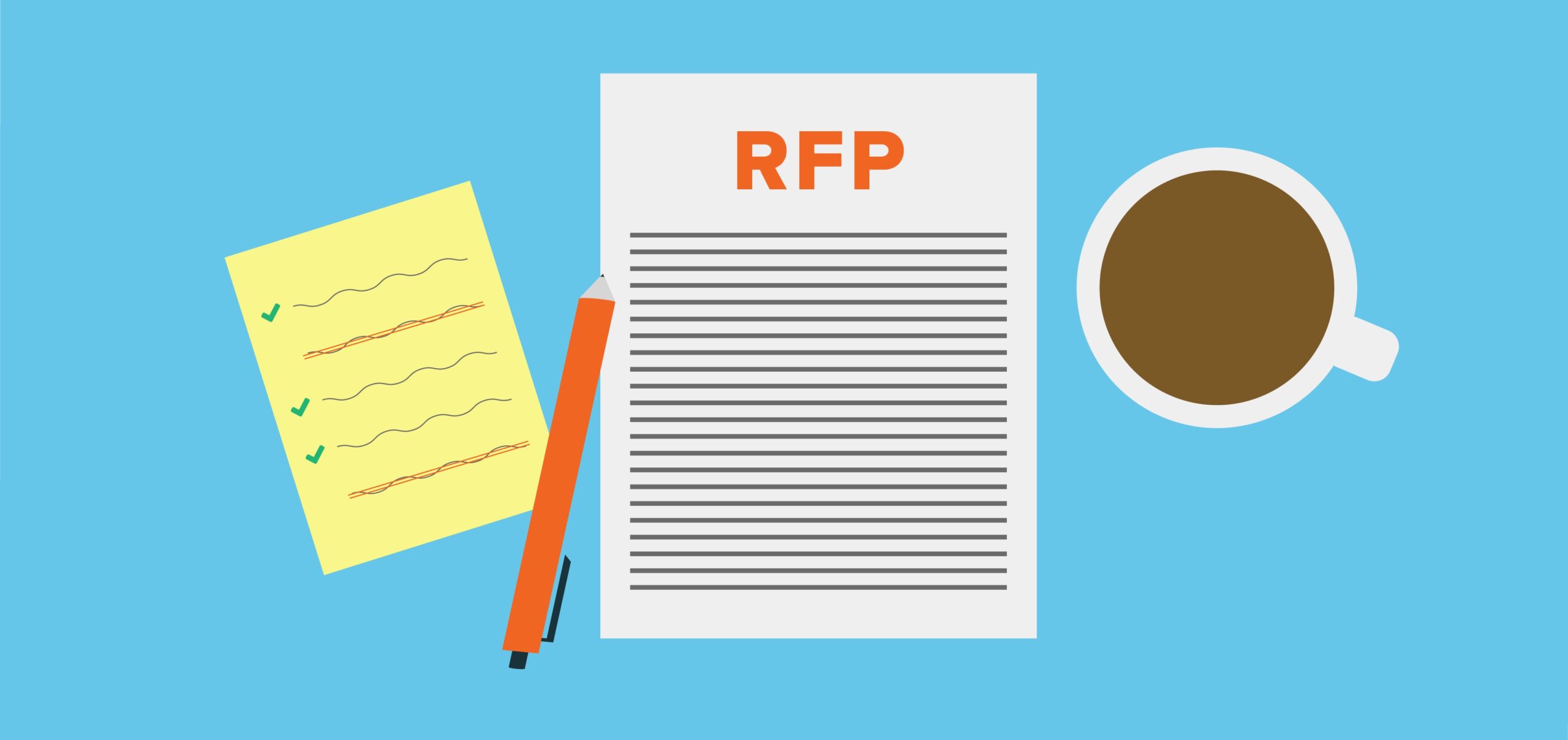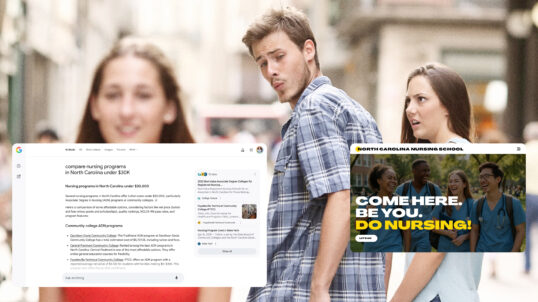You’ve managed to convince your company or organization that it’s time for a website upgrade, and you’re considering outside help to revamp your site. The only problem: How do you select the right agency partner for the job?
Your website request for proposal (RFP) is the starting point of an ongoing conversation with any vendors you may be considering. A well-written RFP helps potential partner agencies understand your goals, understand important context relevant to the project, and paint a clearer picture of the role you ultimately want the new website to play in your organization.
It’s clear that the RFP helps agencies understand your project and put together a more well thought-out proposal, but how does an RFP help you and impact your final decision regarding the right agency to partner with for the next 6+ months? By including the right questions at the end of your RFP, you’ll gain insight into the personality of the agency, how the team communicates and delivers on promises, and whether or not their process jives well with your own.
Using our knowledge and experience from having read hundreds of RFPs over the years, we’ve created this list of the best questions to ask in your RFP to ensure alignment from the start, and common questions to avoid.
Thoughtful Questions to Ask
Can you explain your process for the discovery phase?
Although discovery and research may not be the most exciting phases of the web design process, they are crucial in getting results. Asking an agency to clearly explain what its process is for defining who your users are, uncovering their needs, and observing their behaviors will be critical in determining how invested the agency is in tailoring your site’s organization and design to meet the exact needs of the people you want on your website.
What does your project management process look like?
The project manager will most likely be your “go to” person throughout the project and serve as your main point of contact. As such, it’s important to gain a better understanding of who they are and what it’s like to work with them. Be sure to take note of how often they plan on communicating progress, and what type of feedback they’ll be looking for from you along the way.
How involved will we be in the project? How much time do we need to set aside?
In website design, seamless communication between team members, both internally within the agency and externally on the client side is necessary to meet the deadlines set forth at the beginning of the project. Avoid delays right off the bat by asking exactly how often you’ll need to be available for the project. Getting an honest answer up front about how much time you’ll need to put in will help you assess whether you can realistically do so.
What will the review/testing process look like on our end?
It’s important to find out not only how the UX and Design will be presented by the agency, but also how they’d like you to review it. Will this happen in person or over the phone? How much testing will the agency do, and how much do they typically expect the client to do? These types of questions will help you gauge the agency’s project development structure and judge whether it’s aligned with your own.
Do you provide admin/CMS training? What does that entail?
After your new site is designed, who’s going to be responsible for keeping content relevant and up to date? If your team is going to be doing this internally, it’s a good idea to ask about what the CMS training looks like for site administrators. Will the agency walk you through basic and custom functionality? Will this training take place in person or online? Doing to will ensure a smooth transition once the project is completed.
How do you handle issues post-launch?
Once the new site is up and running, you want to feel confident the agency you choose won’t suddenly abandon you should any issues arise. Asking about the post-launch process is your opportunity to discuss what an acceptable timeframe is for fixing issues that are within the scope of the project.
What types of clients do you typically work well with?
This question is good because it gives you a glimpse into the type of people and clients the agency enjoys working with. Are these clients similar to your own company or organization? If not in the same industry, do they at least share some of the same characteristics as your own team?
Tell us about a recent project you felt most proud of and that best showcases your creative or technical abilities.
We like this one because it gives the agency a chance to demonstrate the kind of work they’re most passionate and tell you why. You’ll be able to tell a lot about the agency just by the project they select and what skills were necessary to accomplish it successfully.
Is there anything we’re not asking that you think we should?
This question is a bit of a wildcard, but we like how forward and transparent it is. Once you’ve done your own research and asked the questions most important on your end, it’s good to get the agency’s perspective to see if there’s anything you may be missing. This provides the agency a chance to expand on any points not made clear throughout the rest of the proposal and also helps you generate ideas for questions to include in future RFPs.
Questions to Avoid
Asking for specific solutions before the agency has all of the information necessary to make a recommendation
The proposal process is meant to act as the start of conversations surrounding business challenges you may be facing using your current website. While specific solutions certainly are necessary to solve these problems, it’s in your best interest to refrain from asking an agency to deliver a fully-formed solution without a deeper understanding of the task at hand. Some of this understanding will come from what’s outlined in the RFP, but a good deal of insights will come from the discovery and research phases of the redesign.
Overly general questions, e.g., “What would you do?”
Asking an agency to wow you on the spot without getting to know your customers, clients, or employees first is like expecting a seamstress to sew you a dress without your measurements. The results will likely be ill-fitting and not what you desired. In web design, this approach undervalues the work that’s done in phase one to build a strategy that bridges business goals with your users’ goals.
Can we skip the discovery phase?
Some clients are so eager to start seeing results that they’d prefer to skip the discovery phase altogether. We strongly advise against this, as it signals to agencies that you’re not invested in user research, and often leads to more serious issues further down the line. When you get the initial research and strategy right, it makes everything going forward much easier, from attracting users to your site, to converting them into customers, and ultimately empowering them to become your biggest fans.
Asking for sensitive information related to other clients and projects
Asking for examples of work is a great idea, but asking for specific reports, research, or deliverables related to other clients and projects should be avoided. Because that information is somewhat proprietary, there is only so much an agency can reveal.
Keep in mind that these questions are merely a guideline to follow as you craft your own RFP document. You shouldn’t feel pressured to include every question on the list, only the ones that most resonate with you and your organization’s goals. Otherwise, you may end up with a 50 page proposal document that’s tough for you to evaluate and time-consuming for the agency to create.
Ready to get started on your own RFP? Download our free, customizable Website Request for Proposal Template that outlines all the information you’ll need.



